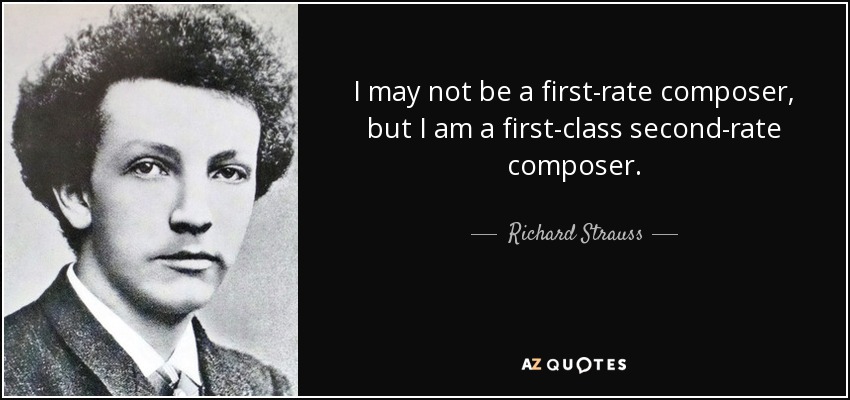
One of his best-known works is Also Sprach Zarathustra, Strauss’s Opus 30, which he wrote in 1896, when he was 32. But before I go much further into this story, let’s give it some context and look at why Strauss was so highly regarded at this stage of career. I want to concentrate on Strauss’s relationship with the Nazis, and so this programme will focus on the composer’s later work. The Reichsmusikkammer was founded by Goebbels to promote “good German music” which was seen as consistent with Nazi ideals, while suppressing other, degenerate music, which included atonal music, jazz and, of course, music by Jewish composers. It was a position unsolicited by him, but for which he was the obvious choice, as by far the most important German composer of the day. Shortly before Strauss wrote that song, he was appointed to the position President of the Reichsmusikkammer, or State Music Bureau. He was unquestionably one of the greatest composers Germany has ever produced but for some his reputation was, and is, stained by his association with the Nazis. You should know that in the last line, ‘He I think, should be my guide’, the German word used for ‘guide’ was Fuhrer.Īnd that’s a story that sums up the difficulty many people have with Richard Strauss. It’s a nice little song, but does its history make it any less lovely? Richard Strauss wrote it in December 1933 and dedicated it to ‘Reichminister Josef Goebbels’, a dedication that was supressed when the song was first published in 1951.



Let’s start with a song, Das Bachlein, The Mountain Brooklet, the words of which were written by a German poet, Caroline Rudolphi. “How do you think your friends will take that?” I recently mentioned to a friend that I was going to do a programme on Richard Strauss and the Nazis.


 0 kommentar(er)
0 kommentar(er)
